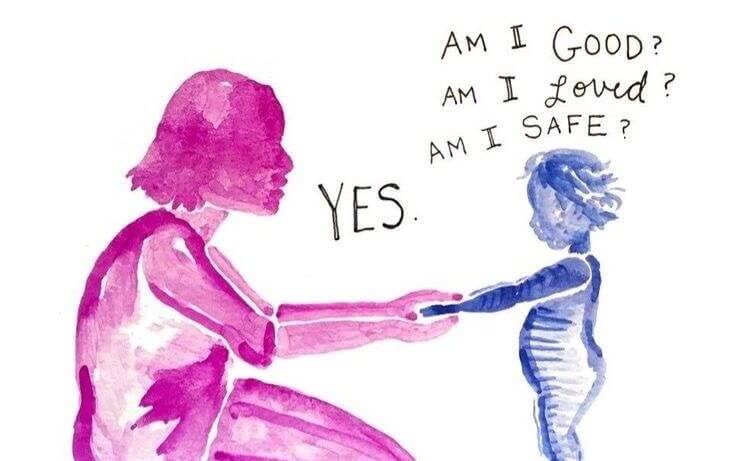Addressing Deeper Wounds in Relationships
Explore how to address deeper wounds in relationships that come from childhood. Discover how to react in healthier ways and create better communication, closer connection, and mutual understanding.

Dr. Nicole LePera
#1 New York Times Bestselling Author “How To Do The Work”(https://t.co/HF3UY9ia4Q) Founder of @selfhealerscirc 👇🏼Join Waitlist 👇🏼

-
If you feel disconnected from your partner in every relationship you're in and have the same fight over and over again...
— Dr. Nicole LePera (@Theholisticpsyc) April 5, 2023
It's time to heal your inner child: pic.twitter.com/akqjD66FPm -
I spent years as a couples therapist.
— Dr. Nicole LePera (@Theholisticpsyc) April 5, 2023
Couples came in trying to work on the issues they were experiencing in the present moment. They all wanted: better communication, closer connection, and mutual understanding. -
These things matter.
— Dr. Nicole LePera (@Theholisticpsyc) April 5, 2023
And they can help, but to create healthy relationships we have to address the deeper wounds.
The wounds that came in childhood long before you met your partner. The wounds that have us react in habitual ways, subconsciously. -
These wounds impact our nervous system and our ability to communicate. Until we process our past, and create new meaning and narratives, we'll project our past wounding onto our partner.
— Dr. Nicole LePera (@Theholisticpsyc) April 5, 2023 -
And, we'll expect them to meet our childhood unmet needs. Something no adult can do for us.
— Dr. Nicole LePera (@Theholisticpsyc) April 5, 2023
By reflecting on our childhood wounds we can have more empathy, awareness, and understanding of ourselves and our partner. -
We can stop blaming or shaming our partners, and realize that we have subconscious beliefs, ideas, and perspectives that were created long before we met them.
— Dr. Nicole LePera (@Theholisticpsyc) April 5, 2023
And we can begin to do the inner work needed to heal from our past. -
6 Common Inner Child Wounds:
— Dr. Nicole LePera (@Theholisticpsyc) April 5, 2023
1. The Suffocation Wound: I had an overbearing parent figure who controlled and micromanaged me. As an adult, I easily get triggered when I feel this way again and view my partner as being smothering or "too needy," or weak. -
2. The Explosion Wound: In my home conflict created explosions that were scary and overwhelming. I feel safe by avoiding conflict at all cost which leaves my partner feeling abandoned or rejected.
— Dr. Nicole LePera (@Theholisticpsyc) April 5, 2023 -
3. The Anxiety Wound: no one in my home knew how to manage their emotions so conflict or disagreement sends me into shame or fear spirals. I immediately want to "fix" everything and hash it out. I give my partner no space (even if they need/request it.)
— Dr. Nicole LePera (@Theholisticpsyc) April 5, 2023 -
4. The Neglect Wound: I had parent figures that were emotionally unavailable and uninterested in me as a person. When my partner is busy or their attention is elsewhere, I'm triggered and feel like I'm being abandoned again even when I know they love me.
— Dr. Nicole LePera (@Theholisticpsyc) April 5, 2023 -
5. The Golden Wound: I was the golden child as the source of a parent's self worth. When I'm not consistently praised or I have an independent partner, I feel unworthy or like I'm not good enough. I expect a partner to see me as perfect.
— Dr. Nicole LePera (@Theholisticpsyc) April 5, 2023 -
6. The Lone Wolf wound: I never witnessed team work or solution seeking in my home. So I struggle to consider my partners needs or wants and compromise is foreign to me. The more they push for compromise the more I fantasize about being alone.
— Dr. Nicole LePera (@Theholisticpsyc) April 5, 2023 -
Identifying our inner child wounds helps us mature and take responsibility for our beliefs and actions.
— Dr. Nicole LePera (@Theholisticpsyc) April 5, 2023
We can understand that there's an inner child within us that's still hurt, acting out, and scared of trusting someone. -
Rather than projecting our pain onto our partner, we can face our inner wound and begin to process them.
— Dr. Nicole LePera (@Theholisticpsyc) April 5, 2023
We can look at a conflict over the dishes and say: "This isn't just about the dishes. This is about me never feeling considered, since childhood." -
With this awareness, we can make choices as our wise adult self. We can remind ourselves that our partner isn't our parent. We are no longer a helpless child.
— Dr. Nicole LePera (@Theholisticpsyc) April 5, 2023 -
Our partner is a different person, and we can relate to them in different ways. We can interpret their actions in new ways rather than painting them into parent figures who couldn't see us or understand us.
— Dr. Nicole LePera (@Theholisticpsyc) April 5, 2023 -
We can have open conversations with our partner about their own wounds, and work together to create mutual healing.
— Dr. Nicole LePera (@Theholisticpsyc) April 5, 2023
This is what it's like to be an adult in love. -
Are you working on your inner child wounds in relationships? Share in the comments...
— Dr. Nicole LePera (@Theholisticpsyc) April 5, 2023
Join the waitlist for SelfHealers Circlehttps://t.co/dqXv0WDTCC
My workbook goes deeper into inner child wounds:https://t.co/cfspkMbDR3
